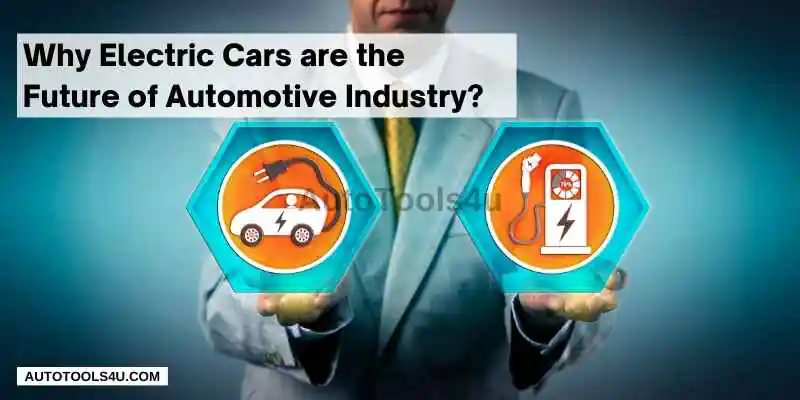In an era where sustainable solutions have become imperative, electric cars have emerged as the vanguard of the automotive industry’s future. With an unprecedented focus on environmental consciousness and technological advancements, electric vehicles have swiftly gained traction, promising to revolutionize transportation as we know it. This introduction explores how electric cars are paving the way to a greener, more efficient, and exciting automotive future, driving us toward a world of cleaner air and sustainable mobility.
This is not a new trend, but when we talk about EVs, most people think of heavy cars and trucks with limited range and speed. While this is true for some electric vehicles, there are many other models available in the market today which can deliver better performance than their gas-powered counterparts. There are several reasons why EVs are becoming popular among drivers all over the world:
EVs are Cheaper to Maintain 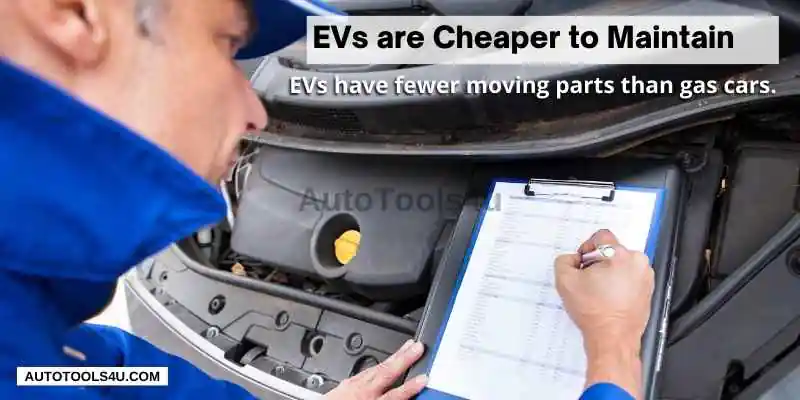
EVs have fewer moving parts than gas cars. This means they cost less to maintain in the long run, because there are less things that can go wrong and break. For example, EVs don’t need oil changes or air filters like gas cars do. They also seldom need to be adjusted or repaired, while most internal combustion engines will eventually require some amount of service over their lifetime (many times requiring many thousands of dollars).
Electric vehicles have fewer fluids than conventional vehicles too: Electric cars use liquid coolant instead of an antifreeze/coolant mixture. The radiator fans only turn on when needed, saving power if you’re not driving enough to begin overheating your battery pack’s temperature even if it has been sitting idle for days at a time since last charging up at home (which is where most people keep their EVS parked unless actively using them). In fact, EVs typically aren’t driven far enough off-pavement during their regular errands around town that they’d ever need more than one gallon’s worth anyway!
EVs Provide Better Driving Experience 
- EVs provide a quiet driving experience.
- EVs are more responsive than ICE vehicles.
- EVs have better acceleration, handling, and braking performance than their ICE counterparts.
- EVs have a reasonable range on a single charge compared to conventional vehicles which run on fossil fuels (petrol or diesel).
EVs have been around for years, but it has taken some time to get them right. For example, EVs are still a relatively new development in the sub-continent and most people do not prefer them because of the limited charging infrastructure. However, in developed countries like Europe and America, electric vehicles are preferred over traditional ICE (internal combustion engine) vehicles.
EVs charging points are getting more numerous 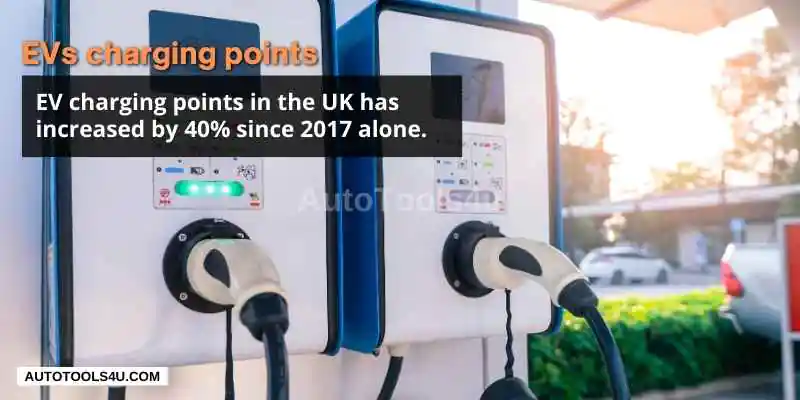
You’re probably wondering where you can charge your electric car. With more than 20,000 charging points in the UK alone, the answer is easier than you think!
Electric vehicles are becoming increasingly popular and EV charging points are getting more numerous. In fact, an analysis by Chargemaster has shown that the number of EV charging points in the UK has increased by 40% since 2017 alone. That means there are now around 20,000 public EV chargers throughout Britain – with plans to increase this figure to 25,000 by 2022.
This growth in public charging stations also means that they’re becoming more accessible – as well as being located at service stations (as with most motorway services), they can also be found at shopping centers and retail parks – making it much easier for drivers who want to stop off on their journeys or take a break while they recharge their batteries at one of these sites!
EV Cars are Much Quieter 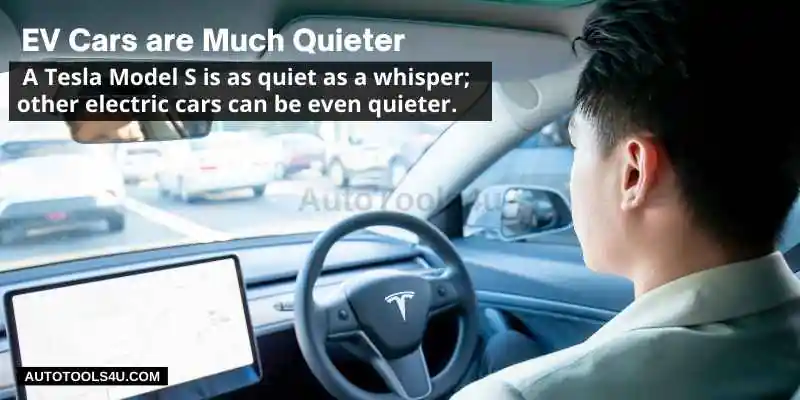
If you think about it, there are several advantages of electric vehicles over gasoline-powered ones that make them more environmentally friendly and more pleasant to drive. For one thing, EVs are much quieter than their gas counterparts. A Tesla Model S is as quiet as a whisper; other electric cars can be even quieter. Meanwhile, gasoline-powered vehicles emit noise from their tailpipes and gears shifting as they accelerate and brake respectively—all of which contribute to the overall noise levels of urban driving environments like Los Angeles or Beijing. Since there’s no engine noise when driving an EV, these cars will not only reduce traffic congestion but also help improve your quality of life in densely populated areas where road noise would otherwise be a problem for both residents and businesses alike
EV Cars Do Not Require Frequent Servicing
Electric cars are the future of the automotive industry because they require less maintenance. Unlike internal combustion engine vehicles (ICEVs), electric vehicles (EVs) have fewer moving parts, fewer fluids, and fewer parts that can wear out. There are also fewer parts that can break or cause problems. For example, the number of oil changes required for an EV is just one per year compared to every three months for an ICEV. The reason why EVs don’t require more frequent servicing is that they have no need for oil changes as it doesn’t use any fossil fuels to run them, unlike ICEVs.
With an EV you can expect to save money on gas and some maintenance costs. While it may seem like EVs are expensive at first glance, they’re actually a great investment over time because they’ll pay for themselves in the long run by providing cheaper fuel prices as well as less frequent servicing. Electric vehicles don’t require as much maintenance.
EVs are Safer than Gasoline-Powered Vehicles 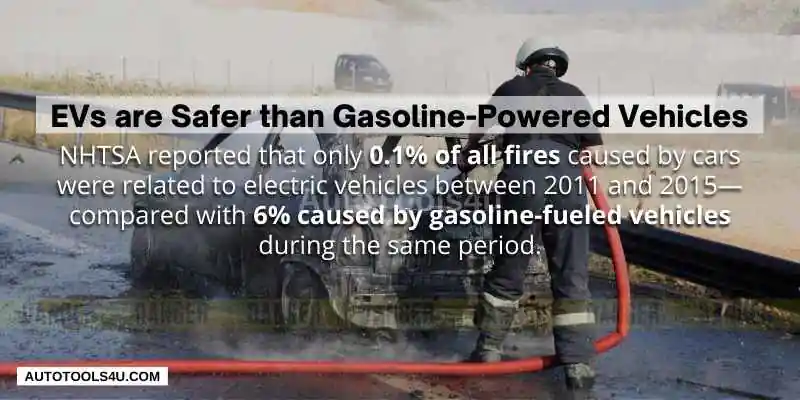
You’ll be surprised to know that EVs are actually safer than their gasoline-powered counterparts. Here’s why:
- Fewer Moving Parts
EVs have fewer moving parts than a car powered by an internal combustion engine (ICE). For example, EVs don’t have a transmission or clutch, which means there are less things that can go wrong and more room for error.
- Less Likely to Catch Fire
Because of their reduced complexity and fewer moving parts, EVs are less likely to catch fire in the event of an accident or collision. In fact, NHTSA reported that only 0.1% of all fires caused by cars were related to electric vehicles between 2011 and 2015—compared with 6% caused by gasoline-fueled vehicles during the same period. This means it’s far less likely you’ll lose everything if you get into a crash while driving an electric car!
We have a very nifty cost comparison calculator between electric cars and traditional fossil fuel cars.
EV’s have Better Torque and Horsepower 
Torque is the force that propels a vehicle. It’s a measure of the turning force of an engine or motor, and it’s calculated by multiplying a torque value (expressed in Newton-meters) by the speed at which it rotates (measured in revolutions per minute).
Horsepower is another key metric used to measure power output. Horsepower refers to how quickly an engine can perform work and is measured in horsepower.
You may be wondering what torque and horsepower have to do with EVs? Torque is a key factor in acceleration, while horsepower determines the top speed of a vehicle. EVs have an advantage over internal combustion engine cars because they have lots of torque due to their electric motors—they can hit 60 mph in as little as 3 seconds.
EVs can produce more power for weight and have better torque performance. 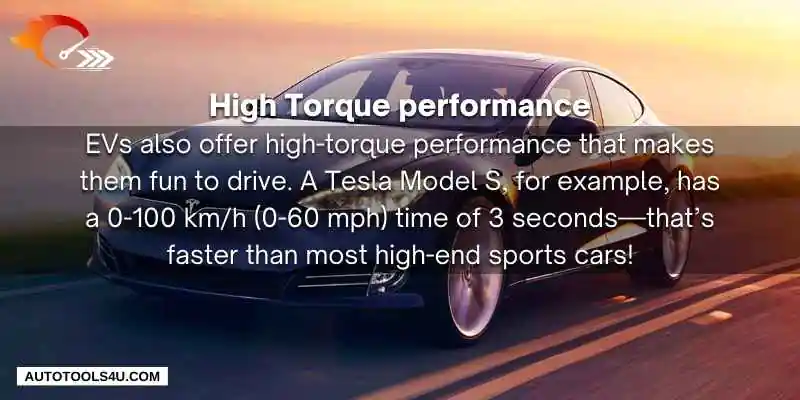
Electric vehicles produce more power for weight. They have better torque and horsepower, which means they can accelerate faster. Electric vehicles can produce more torque at the wheels than internal combustion engines because electric motors are smaller and lighter, offering stronger acceleration.
EVs also offer high-torque performance that makes them fun to drive. A Tesla Model S, for example, has a 0-100 km/h (0-60 mph) time of 3 seconds—that’s faster than most high-end sports cars!
Conclusion
The future of the automotive industry is electric. Technology is advancing rapidly and EVs are becoming more commonplace on our streets. In addition to being environmentally friendly, EVs have many other benefits over their gasoline counterparts. They are cheaper to maintain and can be driven more effectively because they have instant torque delivery capabilities. EVs also provide a smoother ride with less noise pollution because they use regenerative braking systems which work by harvesting energy while slowing down or stopping your vehicle
